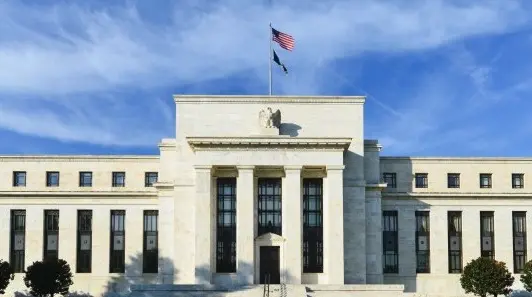Clarion Partners believes that investors, in 2023, should take a long-term view of commercial real estate during this period of uncertainty.
As the Federal Reserve (Fed) aggressively tightens financial conditions to curb inflation, we believe 2023 will be challenged, given high interest rates and the risk of a recession. There are still significant positive tailwinds, however. National consumer spending, labor markets, business activity, corporate balance sheets and the banking system have all continued to be relatively healthy, with much lower leverage than before the global financial crisis (GFC). Depending on how quickly inflation will respond to the Fed’s tightening, several possible economic scenarios could play out over the next year or two. Nonetheless, we do not believe that the coming downturn will be as severe as the GFC. Moody’s Analytics’ baseline forecast for US economic growth is generally positive, with an expected creation of 6.6 million new jobs from 2022 to 2024.
Historically, US commercial real estate (CRE) investment performance has reacted favorably in periods of rising interest rates.1 Because of strong job growth and overall demand for commercial space, property cash flows have remained relatively healthy. While some property sectors, such as office and mall, have not fully recovered from the pandemic impacts, other property sectors, like industrial, apartment, life sciences and self-storage, have reported sizable ongoing rent growth. In addition, there is a manageable level of new supply, especially since elevated construction costs and supply chain disruptions present additional headwinds for new development projects. Geographically, high-growth markets with thriving industries, business-friendly policies, and strong demographics have also seen robust investment performance given the strength of underlying demand fundamentals. Steady migration and corporate relocations have led to outperformance in many Sun Belt metros and select, premier suburban areas.
Read next: UK Santander Bank Fined USD 132 Million, Idris Elba in Cyberpunk 2077:Phantom Liberty| FXMAG.COM
The combination of higher inflation and rising interest rates will likely have a material yet varied impact on the US CRE market in 2023. There have been some disruptions across real estate debt and equity capital markets. Ten-year financing costs have risen by approximately 200-250 basis points2 year-to-date3 (through mid-November in 2022), and higher financing costs, along with tighter lending standards, have added some upward pressure on capitalization (cap) rates and downward pressure on property values. Clarion Partners expects cap rates to expand; the magnitude, however, will depend on various factors. The risk profile of individual assets (sector type, market and lease terms) will matter significantly. High-quality assets with strong net operating income (NOI) growth should fare relatively better.
There is a near-record amount of “dry powder” on the sidelines that seeks to be invested in CRE. At the same time, most property owners are not over-leveraged and are under little pressure to sell right away. For these reasons, we believe that it is likely that the transaction market will remain slow and re-pricing will not be as severe as during the GFC. The pace of property NOI growth (a positive) and cap rate expansion (a negative) will determine property value adjustments.
Looking into 2023, Clarion Partners believes that investors should take a long-term view during this period of uncertainty. The current macro risks and market dislocations may create attractive buying opportunities over the next 12-18 months. In the long run, we believe that for many investors, an adequate allocation to CRE makes sense, as it has proven to be an effective inflation hedge historically and can offer portfolio diversification benefits.4 As CRE transitions into the next market cycle, we also think positioning portfolios for better risk-adjusted performance is important, with an overweight to property sectors and markets that have strong pricing power and can grow cash flow over time.
Endnotes
- Source: NCREIF, Federal Reserve, Moody's Analytics, Clarion Partners Investment Research, September 2022.
- One basis point is equal to 0.01%.
- Source: CBRE, CREFCOA, Cushman & Wakefield, Greenstreet.
- Diversification does not guarantee profits or protect against the risk of loss.
WHAT ARE THE RISKS?
Past performance is no guarantee of future results. Please note that an investor cannot invest directly in an index. Unmanaged index returns do not reflect any fees, expenses or sales charges.
Equity securities are subject to price fluctuation and possible loss of principal. Fixed-income securities involve interest rate, credit, inflation and reinvestment risks; and possible loss of principal. As interest rates rise, the value of fixed income securities falls. International investments are subject to special risks including currency fluctuations, social, economic and political uncertainties, which could increase volatility. These risks are magnified in emerging markets. Commodities and currencies contain heightened risk that include market, political, regulatory, and natural conditions and may not be suitable for all investors.
U.S. Treasuries are direct debt obligations issued and backed by the “full faith and credit” of the U.S. government. The U.S. government guarantees the principal and interest payments on U.S. Treasuries when the securities are held to maturity. Unlike U.S. Treasuries, debt securities issued by the federal agencies and instrumentalities and related investments may or may not be backed by the full faith and credit of the U.S. government. Even when the U.S. government guarantees principal and interest payments on securities, this guarantee does not apply to losses resulting from declines in the market value of these securities.
Risks of investing in real estate securities are similar to those associated with direct investments in real estate, including falling property values due to increasing vacancies or declining rents resulting from economic, legal, political or technological developments, lack of liquidity, limited diversification and sensitivity to certain economic factors such as interest rate changes and market recessions.
Investment involves risks including but not limited to, possible delays in payments and loss of income or capital. Neither Franklin Templeton nor any of its investment managers guarantees any rate of return or the return of capital invested.
Source: 2023 U.S. Real Estate Market Outlook | Franklin Templeton




















































































